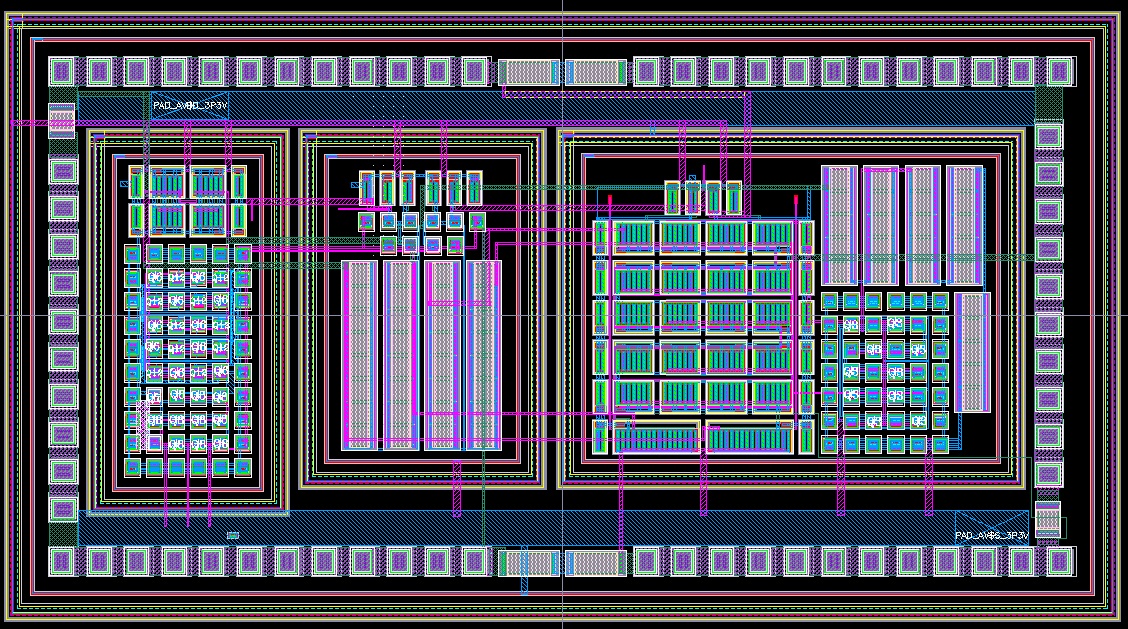FAYETTEVILLE, Ark. – Missions to space require “warm” boxes, which protect electronic circuitry from extreme temperatures and exposure to radiation. Electrical engineering researchers at the University of Arkansas have designed and successfully tested an electronic micro amplifier that can operate directly in the space environment without protection from a warm box.
Capable of functioning with consistency and stability at extreme temperatures – from 125 degrees Celsius to negative 180 degrees Celsius – the new amplifier saves power and space required for electronics circuitry and will also contribute to the development and commercial production of electronics and computer systems that do not require protection in extreme conditions and environments.
“This and several other designs focus on wide-temperature operational characteristics of sensor-based, signal-processing circuits,” said Alan Mantooth, professor of electrical engineering and holder of the Twenty-First Century Endowed Chair in Mixed-Signal IC Design and CAD. “But our device is the first fully differential amplifier circuit designed specifically for extreme temperatures, including temperatures in the cryogenic region. Some of our designs have been tested as fully operational down to 2 Kelvin, or negative 271 degrees Celsius.”
The device, made in a commercially available semiconductor process, has a power supply of 3.3 volts and uses two common-mode feedback circuits to better control the voltage of both the input stage and output stage independently. Using these techniques, the researchers were able to construct an amplifier that provides a large differential gain across both wide frequency and temperature.
In electronics and computer systems, amplifiers are small circuit devices that increase the amplitude of a signal, usually voltage or current. Differential amplifiers are a special type of amplifier that multiplies differences in voltage or current between two inputs by a constant factor. This factor is called differential gain, which is simply the measure of the ability of a circuit to increase the power or amplitude of a signal.
Fully differential amplifiers are used in a variety of electronic systems, including analog-to-digital conversion applications. They are considered a building block in the design and development of integrated electronic circuits and chips.
Under Mantooth’s direction, the researchers – electrical engineering graduate students Kimberly Cornett and Ivonne Escorcia and post-doctorate fellow Guoyuan Fu – developed a device with three distinct sections. The design consisted of an input stage, an output stage and their respective common-mode feedback circuits.
The input stage connects directly to two voltage signals of interest. The difference between the input signals is amplified in the input stage and then further amplified in the output stage. Because only the difference in the two input signals is desired, anything that is similar, or “common,” between the two signals should be cancelled.
Common-mode feedback circuitry ensures that both the input and the output stages are only amplifying the difference of the input signals and cancelling anything that is common between them. Using independent common-mode feedback circuits for input and output stages allows for more fine-tuning and a higher quality output signal.
The research was presented and published today at the IEEE Aerospace Conference in Big Sky, Mont. The conference highlights advances in aerospace technology. An electronic copy of the article is available upon request.
Contacts
,
